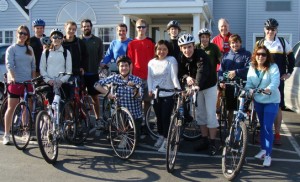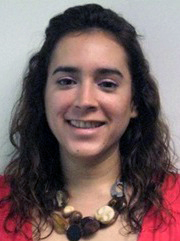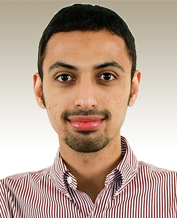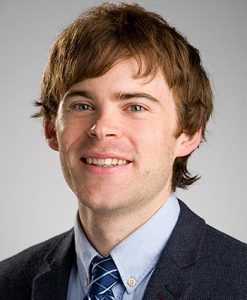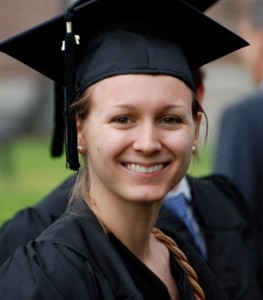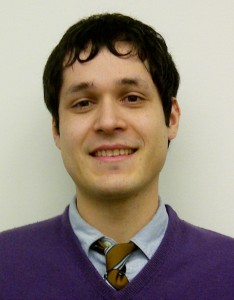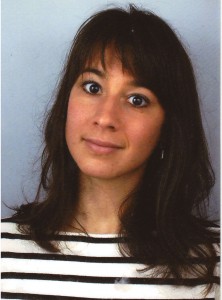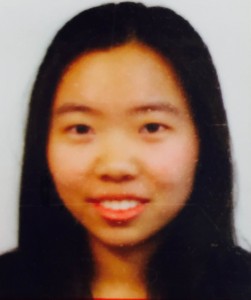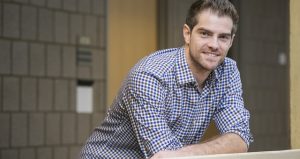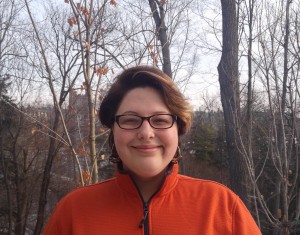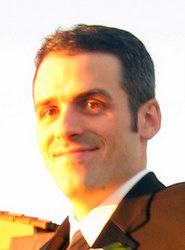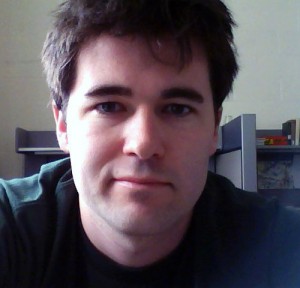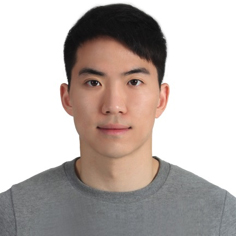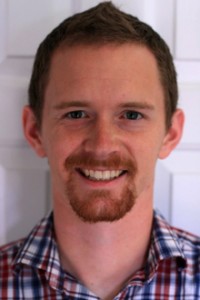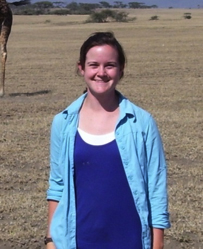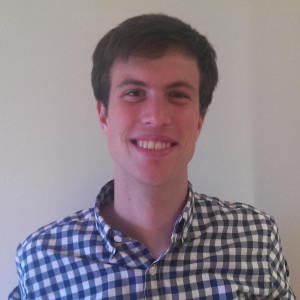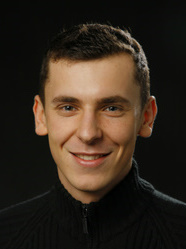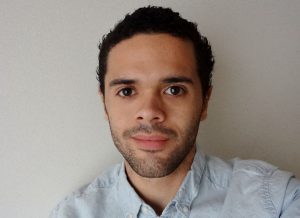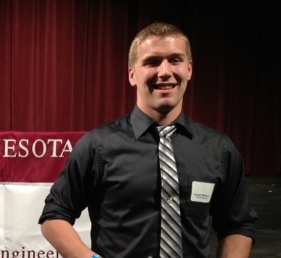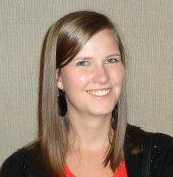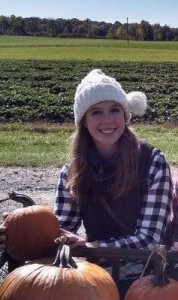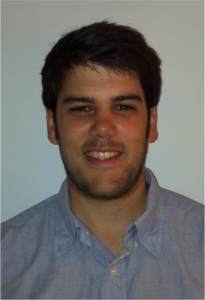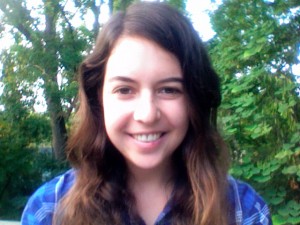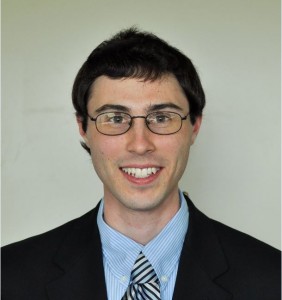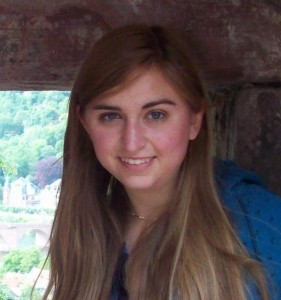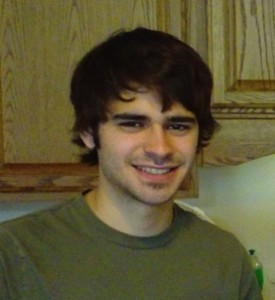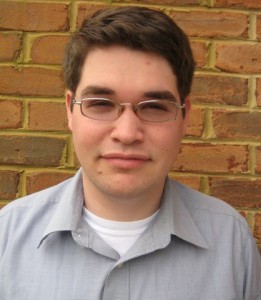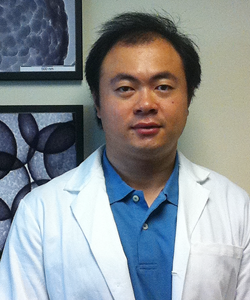Current and Recent Students
Name: Andrea Aguirre
Education: Southern Methodist University, B.S. Environmental Engineering
Academic Year: Current PhD student
Hometown: Monterrey, Mexico/Houston, Texas
Research Area: Geothermal Resource Assessment, Uncertainty and Risk Analysis
Why I Joined: I have really enjoyed the modules and lectures specifically directed towards student’s research interests.
Advisor/Grad Field: Jefferson Tester Chemical Engineering
Email: gaa48@cornell.edu
Name: Mohammad Aljishi
Education: B.S. Chemical Engineering, Rice Univ. 2008
Academic Year: Current PhD student
Hometown: Qatif, Saudi Arabia
Research Area: Oil Desulfurization
Why I Joined: Opportunities for professional development.
Advisor/Grad Field: Yong Joo & Jefferson Tester
Email: mfa33@cornell.edu
Name: Koenraad Beckers
Education: B.Sc., Mechanical Engineering, KU Leuven, Belgium; M.Sc., Mechanical Engineering (Thermotechnical Sciences), KU Leuven, Belgium M.Eng.; Chemical Engineering (Energy Economics and Engineering), Cornell University
Academic Year: PhD student – Graduated, currently working at NREL
Hometown: Sint-Truiden, Belgium
Research Area: Heat transfer analysis of geothermal wells and geothermal reservoirs, both for EGS and geothermal heat pumps. Study of low-grade geothermal resource applications in the Eastern United States.
Why I Joined: I wanted to do research in geothermal energy. This requires knowledge in both energy and earth systems. This program offers this opportunity.
Advisor/Grad Field: Jefferson Tester/Chemical Engineering
Email: kb447@cornell.edu
Name: Ivan Timothy Beentjes
Education: BASc. Mechanical Engineering, University of Waterloo (2017)
Academic Year: Current MS student
Hometown: Toronto, Canada
Research Area: My research focuses on the practical development of advanced drilling methods using supercritical fluids with the goal of utilizing these techniques to access deep geothermal resources. The experimental component of the research involves developing new techniques, such as chemical dissolution, to enhance the hydrothermal spallation of crystalline basement rocks. Another area of research is the computational modelling of high pressure steam behaviour in sedimentary rock bitumen oil wells. Significant gains in process efficiency can be achieved by optimizing already existing systems through an improved understanding of multi-phase fluid behaviour.
Why I Joined: My objective is to combine a multidisciplinary engineering education with my international and practical experience to help develop alternative energy solutions. Having devoted the majority of my life to humanitarian projects in some of the world’s most impoverished regions, I have seen first-hand the difference that energy can make in improving lives.
Advisor/Grad Field: Jefferson Tester/Chemical Engineering
Email: ib283@cornell.edu
Name: Erin Camp
Education: Amherst College, B.A. Geology
Academic Year: PhD student – Graduated
Hometown: Los Angeles, CA
Research Area: Geothermal Energy — Subsurface Mechanics and Systems
Why I Joined: I wanted to combine my background in Geology with my passion for sustainable energy (particularly geothermal). Because this program welcomes both geoscientists and engineers without prior experience in both fields, it was the ideal program for my pursuits.
Advisor/Grad Field: Jefferson Tester/Earth and Atmospheric Sciences
Email: erc85@cornell.edu
Name: Don B. Fox
Education: MIT, S.B. Chemical Engineering, 2010
Academic Year: PhD student – Graduated
Hometown: Pharr, Texas
Research Area: Sustainability and Thermal Mapping of EGS reservoirs
Why I Joined: To be able to successfully work on a project with real world applications, a multidisciplinary approach is required. My project spans different disciplines, not only chemical engineering. This program gave me the opportunity to see things through the view point of different disciplines.
Advisor/Grad Field: Don Koch & Jefferson Tester/Chemical and Biomolecular Engineering
Email: dbf53@cornell.edu
Name: Léda Gerber
Education: Ecole Polytechnique Fédérale de Lausanne (EPFL), B.S. & M.S. Environmental Engineering, PhD Energy Sciences
Academic Year: PhD student, Graduated
Hometown: Porrentruy, Switzerland
Research Area: Techno-economic and Life Cycle Assessment of biofuels production processes and geothermal systems
Why I Joined: To pursue my research in the field of renewable energy systems engineering and get into contact with researchers from other fields working on issues related to energy.
Advisor/Grad Field: Jefferson Tester/Chemical and Biomolecular Engineering
Email: lng28@cornell.edu
Name: Xiang Gloria Gu
Education: Beijing University of Chemical Technology; Rutgers, the State University of New Jersey; Cornell University
Degree Program: B.S. in Chemical Engineering, currently pursuing M.S. in Chemical Engineering
Hometown: Beijing, China
Research Area: Our group is investigating thermally reactive tracer transport in fractured bedrock in order to predict the thermal lifetime of EGS reservoirs. By conducting preliminary laboratory experiments, we attempt to characterize the thermal performance of reactive tracers and contribute to provide advanced modeling capabilities of geothermal reservoirs.
Advisor/Grad Field: Prof. Jefferson W. Tester
Email: xg248@cornell.edu
Name: Adam J. Hawkins
Education: B.S. Geology, University of California, Davis (2009); M.S. Geology, California State University, Long Beach (2013); PhD Geology, Cornell University, 2017
Academic Year: PhD student, Graduated, Post-Doc at Stanford University
Hometown: Oakley, Ca
Research Area: My research focuses on developing tools to identify fluid flow paths in subsurface fracture networks, with specific applications to the geothermal industry. These tools include geophysical methods (e.g., Electrical Resistivity Tomography and Fiber-Optic Distributed Temperature Sensing), nanoparticle tracers, reactive tracers, and computational models involving Principal Component Analysis (PCA) and a Genetic Algorithm (GA). I focus on validating these characterization methods in meso-scale field experiments and laboratory experiments.
Why I Joined: An interdisciplinary community of scientists and engineers allows this program to provide a fluidity of ideas between each element of the world’s 21st century energy challenges. My research is directly improved through contact with these complimentary disciplines and perspectives.
Advisor/Grad Field: Jeff Tester/Chemical Engineering
Email: ajh338@cornell.edu
Name: Katherine Herleman
Education: B.S. Geological Sciences, Florida International University ’13
Academic Year: Current MS student
Hometown: Sarasota, FL
Research Area: Risk assessment of nuclear waste storage sites and deep geological repositories; life cycle assessment comparisons of nuclear to renewable methods of electricity generation
Why I Joined : My professional goal is to assist US policy makers in developing scientifically-informed, long-term energy policy. I joined this program to ensure that I would balance the depth of my research interests with the breadth of understanding the technical challenges and environmental trade-offs associated with each alternative power generation technology. The interdisciplinary, collaborative nature of the program is perfect for scientists who want to tackle complex research questions which not only challenge their technical and intellectual abilities but also require them to develop project management and communication skills.
Advisor/Grad Field: Teresa Jordan/Earth and Atmospheric Sciences
Email: kch227@cornell.edu
Name: Sean Hillson
Education: Columbia University – Chemical Engineering B.S.; Hobart College – Physics B.S.
Academic Year: Current MS student
Hometown: New City, NY
Research Area: Hydrothermal Drilling
Why I Joined: Society is faced with a profound challenge to overhaul the ways that we provide energy. The traditional energy sources that fueled our economy and growth for the past 100 years are no longer as stable and secure as they once were. Fossil fuels are altering our climate, endangering ecosystems and biodiversity, and contributing to social, political, and economic volatility. The Earth-Energy program stood out as a unique opportunity to learn about the importance of subsurface systems on energy development, specifically in the area of geothermal energy. The program goes further by discussing how we, as engineers and scientists, can safely produce energy from these environments and effectively communicate the process to an engaged, concerned public.
Advisor/Grad Field: Teresa Jordan/Earth and Atmospheric Sciences
Email: sdh93@cornell.edu
Name: Erik J. Huber
Education: M.S. Mechanical Engineering, Columbia University (2010); B.S. Mechanical Engineering, University at Buffalo (2008); A.S. Engineering Science, Alfred State College (2006)
Academic Year: Current PhD student
Hometown: Fulton, NY
Research Area: My research is in theoretical and numerical modeling of mass transport in porous media. Specifically I study carbon sequestration injection strategies.
Why I Joined: Energy has always fascinated me and I always wanted the chance to work within a large group to tackle the growing energy challenges and to study possible strategies to mitigate global climate change. The Earth-Energy program presented this opportunity to me and even went beyond those hopes by providing a forum where outside experts could come and share their knowledge within the modules that we take throughout the year.
Advisor/Grad Field: Abe Stroock/Chemical Engineering
Email: ejh87@cornell.edu
Name: Mitchell Ishmael
Education: BS in Chemical Engineering at Rose-Hulman Institute of Technology
Academic Year: PhD student – Graduated, currently President and CEO of Active Energy Systems Inc.
Hometown: Knoxville, TN
Research Area: Measuring thermodynamic properties of supercritical fluids
Why I Joined: This program will allow me to pursue my research interests which delve into the complex problems of interactions on the nanoscale and how they might be applied to future energy solutions. I joined because its student-centered framework will help transform me into a successful independent researcher.
Advisor/Grad Field: Jefferson Tester/Materials Science and Engineering
Email: mpi4@cornell.edu
Name: Doyeon Kim (DK)
Education: B.S. Civil & Environmental Engineering, Yonsei University, Seoul, Korea; M.A. Civil & Environmental Engineering – Geomatics and Remote Sensing, Yonsei University, Seoul Korea
Academic Year: Current PhD student
Hometown: Seoul, Korea
Research Area: Seismology – Seismic interferometry using ambient noise
Why I Joined: I would like to explore more opportunities within my field of study in combination with global energy issues.
Advisor/Grad Field: Larry Brown/Geophysics
Email: dk696@cornell.edu
Name: David Kemmenoe
Education: Cedarville University, B.S. Mechanical Engineering
Academic Year: Current PhD student
Hometown: Newark, Ohio
Research Area: My first project is on the mechanical properties of braze alloys used for heat exchangers in corrosive environments. My second project is related to the mechanical properties of thin metallic glass foils used in high efficiency transformer applications.
Why I Joined: I joined the program for the chance to be a part of an interdisciplinary program that equips students to address the energy issues of the future.
Advisor/Grad Field: Undecided/MAE
Email: djk293@cornell.edu
Name: Catherine Lambert
Education: University of Rochester, BS Geological Sciences and BA English
Academic Year: MS Student – Graduated
Hometown: Elmira, NY
Research Area: Seismology
Why I Joined: I joined the program to take advantage of a program which brings together researchers from diverse backgrounds in order to best approach problems of great societal impact and intellectual complexity.
Advisor/Grad Field: Katie Keranen/Geosciences
Email: cel247@cornell.edu
Name: Victor Lambert
Education: B.S Chemical Engineering, Northeastern University, 2014
Academic Year: MS student, Graduated
Hometown: Jamestown, RI
Research Area: Silicon and germanium nanowires for lithium ion batteries
Why I Joined: I have always been interested in the energy industry, particularly in renewable sources. Joining this program allows me to further my knowledge of the field and to meet engineers and scientists from a wide variety of fields.
Advisor/Grad Field: Tobias Hanrah/Chemical Engineering
Email: vrl27@cornell.edu
Name: Maciej Lukawski
Education: M.S., Energy Engineering, AGH-University of Science and Technology, Poland, 2010; M.S., Renewable Energy Science with Specialization in Geothermal Energy, RES, Iceland, 2009
Academic Year: PhD student – Graduated, current Postdoctoral Researcher at Cornell University
Hometown: Kielce, Poland
Research Area: Techno-economic analysis of innovative uses of low-temperature geothermal resources
Why I Joined: My primary research area is the utilization of geothermal energy for generation of electricity and district heat. Analysis of geothermal systems requires a good insight into both transport processes and chemical reactions occurring in the subsurface as well as the conversion of recovered energy to its end-use form taking place in the surface infrastructure. The Earth-Energy program gave me a rare opportunity to expand my engineering knowledge with the elements of geosciences.
Advisor/Grad Field: Jefferson Tester/Chemical and Biomolecular Engineering
Email: mzl8@cornell.edu
Name: John Mason
Education: Tufts University, Geological Sciences, BS 2011
Academic Year: PhD student – Graduated
Hometown: New Britain, CT
Research Area: Potential for Energy Recovery from Sedimentary Formations
Why I Joined: I am intensely interested in helping to resolve national and global energy issues in a sustainable manner.
Advisor/Grad Field: Teresa Jordan/Earth and Atmospheric Science
Email: jlm526@cornell.edu
Name: Joe Mattson
Education: ChE from the University of Minnesota Duluth
Academic Year: Current PhD student
Hometown: Duluth, MN
Research Area: Planar flow casting of molten metals; controlled solidification and microstructure of energy metals
Why I Joined: This is an interesting program in the way it brings together students from different backgrounds. This allows me to form relationships with students and researchers that I otherwise would not have; already I have formed very strong relationships with geologists, atmospheric scientists, and engineers (to name a few). On top of that, the Earth Energy program allows me to contribute to solving the current energy problems we are facing, but doesn’t “pigeonhole” me into a specific area. Not only can I try to help solve the energy crisis, but can do so by performing the research that interests me as an individual. And lastly, but of no less importance, there are always top-notch snacks at the weekly meetings.
Advisor/Grad Field: Paul Steen/Chemical Engineering
Email: jwm349@cornell.edu
Name: Arna Palsdottir
Education: B.S. Chemical Engineering, University of Iceland, 2013
Academic Year: Current PhD student
Hometown: Reykjavik, Iceland
Research Area: Geothermal energy, sustainable mining, renewable energy. My research focuses on sustainable methods to mine lithium, mainly from alternative brine sources.
Why I Joined: The combination of sustainable energy and traditional chemical engineering methods is what made this program appealing to me as well as the broad collaboration between different academic fields.
Advisor/Grad Field: Jefferson Tester/Chemical Engineering
Email: ap776@cornell.edu
Name: Kate Polhemus
Education: Georgia Institute of Technology, B.S & M.S Mechanical Engineering
Academic Year: Current PhD student
Hometown: Roswell, Ga
Research Area: Microfluidics: subsurface nanoparticle detection
Why I Joined: To broaden my understanding of how earth and energy problems can be solved with engineering skills and work with people of different backgrounds to solve energy challenges.
Advisor/Grad Field: Brian Kirby & Jefferson Tester/ Mechanical Engineering
Email: kcp44@cornell.edu
Name: Andrew Shah
Education: BChE, University of Delaware (2013)
Academic Year: Current PhD student
Hometown: Maple Glen, PA
Research Area: Development of multifunctional nanostructured polymeric membranes for earth energy applications
Why I Joined: I joined the program for the opportunity to interact with and learn from people with a variety of technical backgrounds relating to earth energy.
Advisor/Grad Field: Yong Joo/Chemical and Biomolecular Engineering
Email: abs337@cornell.edu
Name: Laura Sinclair
Education: Bachelor of Applied Science in Chemical Engineering, University of Toronto
Academic Year: Current PhD student
Hometown: Toronto, Canada
Research Area: My work focuses on extraction of rare earth elements using supercritical carbon dioxide. Rare earth elements are challenging to separate due to their similar chemical behavior. Supercritical carbon dioxide is a promising new solvent which may allow for enhanced extraction and/or separation.
Why I Joined: To learn the broader picture of metals and energy supply from a diverse and multi-disciplined team
Advisor/Grad Field: Jefferson Tester, John Thompson
Email: lks82@cornell.edu
Name: Jared D. Smith
Education: B.S. Environmental Engineering, Clarkson University, Potsdam, NY, M.S. Environmental and Water Resources Systems Engineering, Cornell University
Academic Year: Current PhD student
Hometown: Islip, NY
Research Area: Spatial statistical analysis and modeling of environmental and earth-energy systems: Sedimentary basin geothermal resource assessments and heat-in-place evaluations with non-stationary spatial covariance structures (stratified kriging, conditional simulation); Uncertainty analysis and decision analysis for multiobjective resource assessments; Exploratory spatial data analysis and spatial outlier analysis; Porosity-permeability regression with censored data (tobit regression).
Why I Joined: The Earth Energy group allows for an interdisciplinary collaboration between students and faculty that broadens my awareness of the water-energy nexus through seminars, field trips, and energy module courses. I believe that the knowledge of energy systems I will gain from being part of the IGERT will allow me to make better informed decisions as a future water resources engineer.
Advisor/Grad Field: Jery Stedinger/Civil and Environmental Engineering
Email: jds485@cornell.edu
Name: Lauren Stutzman
Education: B.S. Chemical Engineering, University at Buffalo, 2013
Academic Year: Current PhD student
Hometown: Buffalo, NY
Research Area: Energy Storage in Supercritical Fluids
Why I Joined: This program gives me the opportunity to work with individuals from a variety of disciplines to confront challenges associated with sustainable energy development.
Advisor/Grad Field: Jefferson Tester/Chemical Engineering
Email: ls724@cornell.edu
Name: Benjamin Valentino
Education: B.S. Mathematics, B.S. Geology State University of New York
Academic Year: MS student, Graduated
Hometown: New Haven, NY
Research Area: Geophysics
Why I Joined: I have an interest in the applications of geophysics to natural resource exploration and energy production.
Advisor/Grad Field: Rowena Lohman/Earth and Atmospheric Sciences
Email: brv9@cornell.edu
Name: Calvin Whealton
Education: B.S. in Civil Engineering, Old Dominion University
Academic Year: PhD student, Graduated
Hometown: Norfolk, Virginia
Research Area: Risk Analysis and Water Resources
Why I Joined: This program allows me greater access to resources that will further my research and professional goals.
Advisor/Grad Field: Jery Stedinger/Civil & Environmental Engineering
Email: caw324@cornell.edu
Name: Yushi Zhao (Russell)
Education: Goshen College
Academic Year: PhD student, Graudated
Hometown: Florida
Research Area: Subsurface Fluid Flow, Duo-tracer Fluid Diffusion, Carbon Sequestration
Why I Joined: Enrich Experience, Assist in Research
Advisor/Grad Field: Lawrence M. Cathles/Earth and Atmospheric Sciences
Email: yz538@cornell.edu
